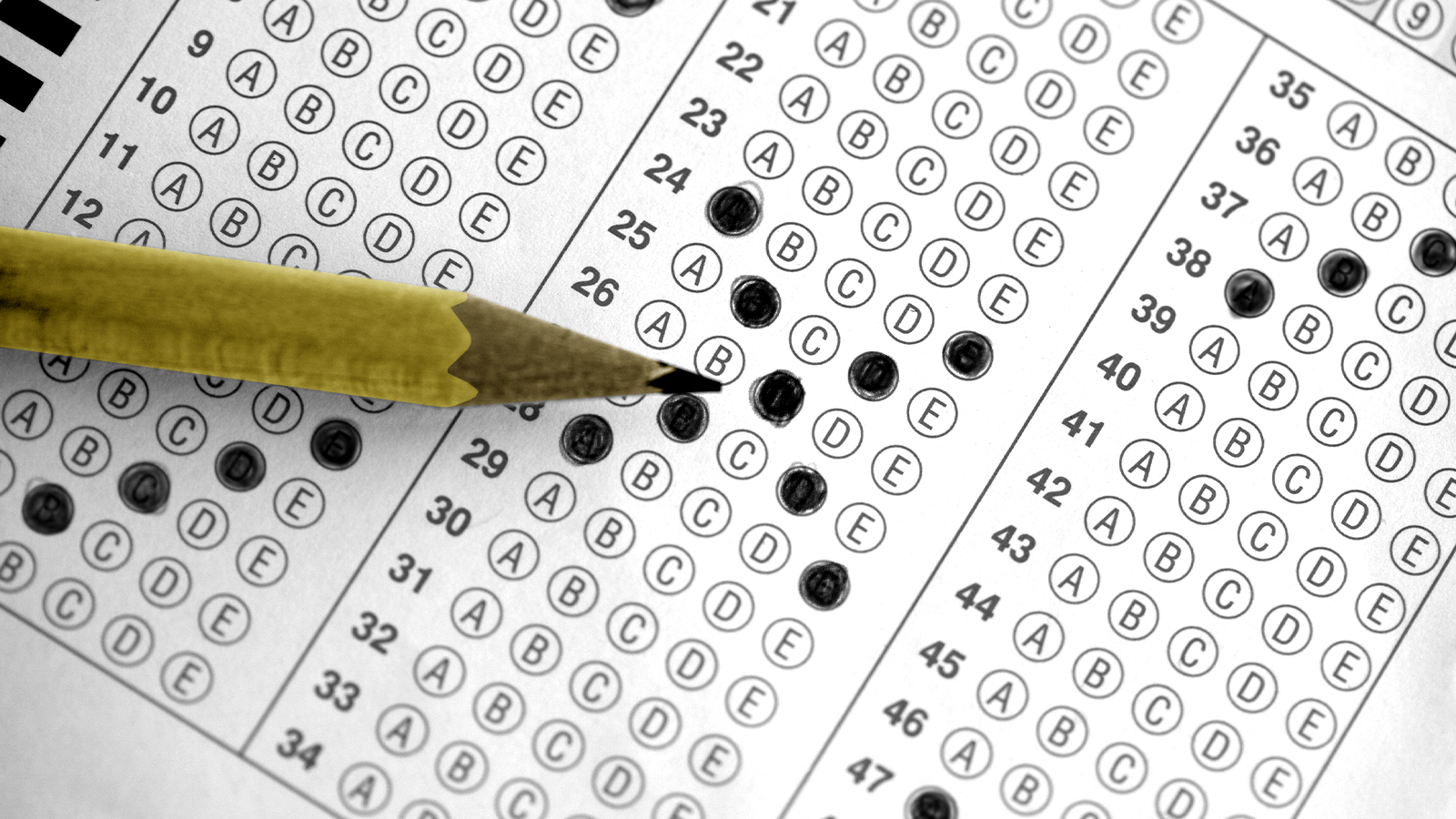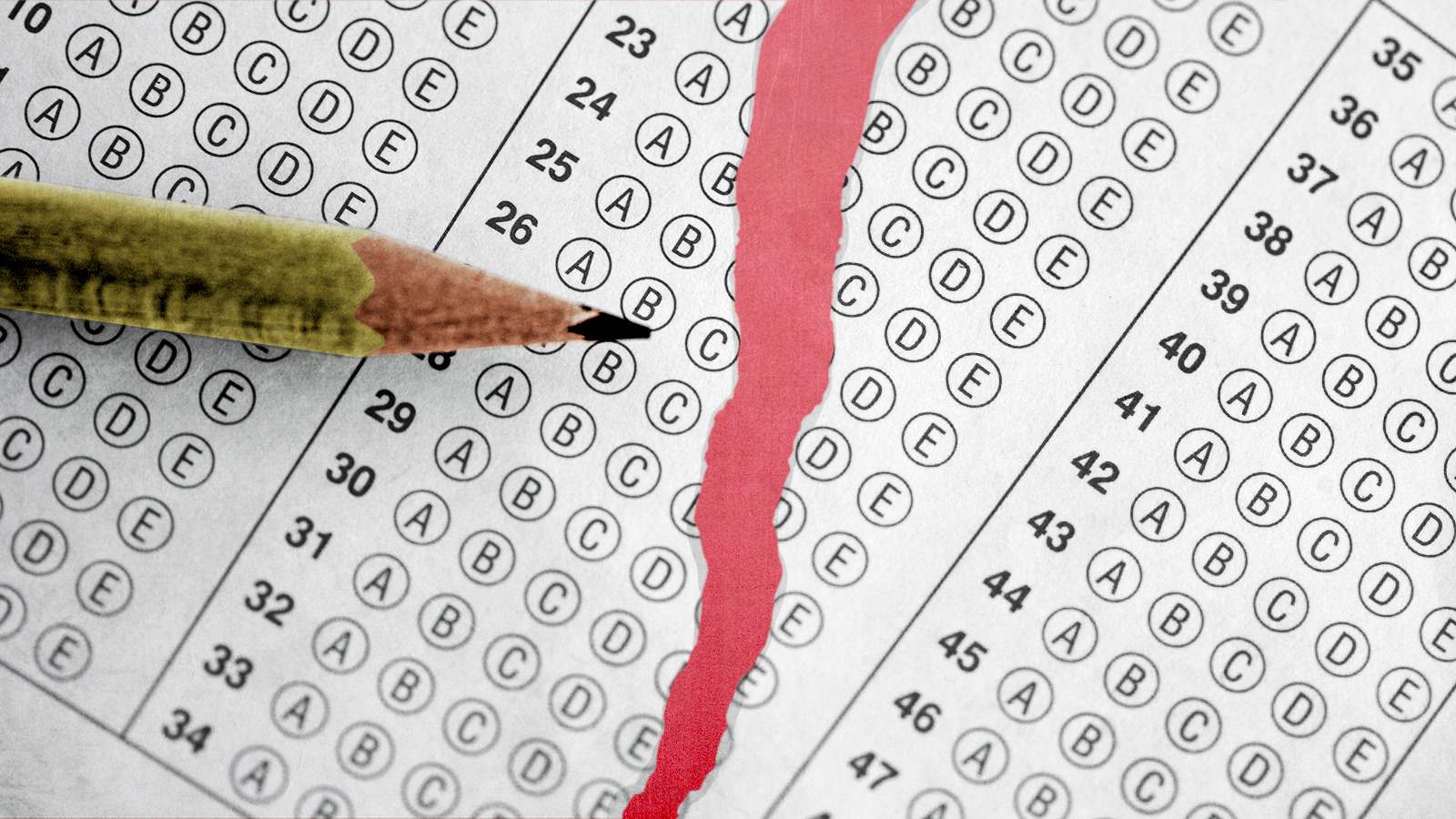Meet the new Harvard, same as the old Harvard


A free daily email with the biggest news stories of the day – and the best features from TheWeek.com
You are now subscribed
Your newsletter sign-up was successful
Standardized tests may be a pandemic casualty. Since 2020, a growing number of universities have stopped requiring applicants to submit SAT or ACT scores, ostensibly because students are finding it more difficult to prepare, and sit for, the exams. This week, Harvard took a step toward making that permanent; The Washington Post reports that the proverbial "college in Boston" will extend its test-optional policy for four more years.
Public health considerations aren't the only motive. For years, critics have argued the tests are at best irrelevant to academic success and at worst biased against Black and Hispanic applicants. Aligned with the fashionable racial justice movement, colleges would like credit for reform without admitting that they've engaged in discrimination. Going test-optional is one way to send the right message.
But even observers sympathetic to that cause are skeptical. The main reason Harvard and its counterparts are dropping the test is that it's in their interest to do so.
The Week
Escape your echo chamber. Get the facts behind the news, plus analysis from multiple perspectives.

Sign up for The Week's Free Newsletters
From our morning news briefing to a weekly Good News Newsletter, get the best of The Week delivered directly to your inbox.
From our morning news briefing to a weekly Good News Newsletter, get the best of The Week delivered directly to your inbox.
Because a high score on the SAT or ACT is a perceived obstacle to admission, applications tend to increase when selective institutions stop requiring scores. That sounds nice — until you remember that increased demand for the same number of seats means the acceptance rate drops (Harvard's is currently around 3.5 percent). A low acceptance rate, in turn, contributes to a high ranking from U.S. News & World Report or others raters, which encourages yet more applications. It's a virtuous cycle for universities, that count on rankings to inspire donors as well undergraduate applications. But it's not great for aspiring students.
Not requiring standardized tests also reduces the amount of information about admissions standards that is available to the public. This week, Princeton announced that it will begin withholding data about prospective students' admission rates by SAT score range and average GPA that is used to release. The university claims that it wants to reduce applicants' "anxiety." Maybe so. But the embargo also deflects scrutiny of practices that can attract legal challenges as well as media criticism.
Above all, test-optional admissions is about control. If colleges don't have to consider commensurable, publicly available measures of achievement, admissions offices will find it easier to apply subjective criteria. That sometimes will benefit applicants from "underrepresented" minorities whose admission might have been difficult to justify using scores alone. In other — and perhaps more — cases, it will benefit rich or well-connected families who know how to accumulate evidence of leadership, athletic ability, or other desirable non-academic qualities, and which amounts to simply buying their way in.
The elevation of political sympathy, cultural status, and donor preferences over demonstrated academic achievement is a repudiation of meritocratic aspirations that American higher education publicly embraced, although never consistently practiced, around the middle of the 20th century. For the same reason, the decision to do away with standardized test requirements marks a return to the historical norm, by which elite colleges were more concerned with students' family backgrounds and social potential than with their knowledge.
A free daily email with the biggest news stories of the day – and the best features from TheWeek.com
Supporters of test-optional admissions want to believe they're unraveling a legacy of WASP privilege that prevents higher education from reaching its democratic potential. In fact, they're rebuilding it in a different guise.
Samuel Goldman is a national correspondent at TheWeek.com. He is also an associate professor of political science at George Washington University, where he is executive director of the John L. Loeb, Jr. Institute for Religious Freedom and director of the Politics & Values Program. He received his Ph.D. from Harvard and was a postdoctoral fellow in Religion, Ethics, & Politics at Princeton University. His books include God's Country: Christian Zionism in America (University of Pennsylvania Press, 2018) and After Nationalism (University of Pennsylvania Press, 2021). In addition to academic research, Goldman's writing has appeared in The New York Times, The Wall Street Journal, and many other publications.
-
 Tourangelle-style pork with prunes recipe
Tourangelle-style pork with prunes recipeThe Week Recommends This traditional, rustic dish is a French classic
-
 The Epstein files: glimpses of a deeply disturbing world
The Epstein files: glimpses of a deeply disturbing worldIn the Spotlight Trove of released documents paint a picture of depravity and privilege in which men hold the cards, and women are powerless or peripheral
-
 Jeff Bezos: cutting the legs off The Washington Post
Jeff Bezos: cutting the legs off The Washington PostIn the Spotlight A stalwart of American journalism is a shadow of itself after swingeing cuts by its billionaire owner
-
 Where will international students go if not the US?
Where will international students go if not the US?Talking Points China, Canada and the UK are ready to educate the world
-
 Smartphones face bans in US schools
Smartphones face bans in US schoolsTalking Points Educators say the devices disrupt classrooms
-
 Another standardized test bites the dust. Will standards follow?
Another standardized test bites the dust. Will standards follow?Talking Point
-
 What conservatives really mean when they say 'groomer'
What conservatives really mean when they say 'groomer'Talking Point
-
 What the 'Don't Say Gay' bill debate tells us about democracy
What the 'Don't Say Gay' bill debate tells us about democracyTalking Point
-
 Princeton gives a pay raise to some of the most privileged people in the world
Princeton gives a pay raise to some of the most privileged people in the worldTalking Point
-
 Transparency is good, but it won't end the CRT debate
Transparency is good, but it won't end the CRT debateTalking Point
-
 Americans just want their schools left alone
Americans just want their schools left aloneTalking Point
